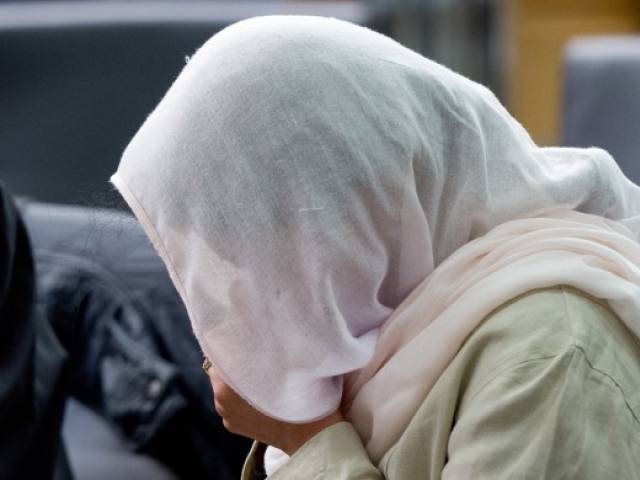
While the first cry of a newborn child creates precious moments of bliss for the families eagerly waiting outside the forbidding doors of the labor ward, for new mothers silently enduring obstetric violence within, the celebrated transition into parenthood is far from sweet.
According to the World Health Organization (WHO) obstetric violence involves the verbal and physical mistreatment of laboring patients by healthcare providers in a hospital setting.
It includes, but is not limited to beating, ridiculing, performing surgical procedures without anesthetic, performing unconsented procedures, violating the right of patients to body privacy during gynecological exams, dismissing patients’ pain and concerns, or abandoning care altogether.
Despite the WHO identifying obstetric violence as a gross violation of the right of women to dignified maternal care, the vice is a normalized, yet underreported occurrence in labor wards across public hospitals in the province, which not only fail to supervise the conduct of medical staff but also neglect maintenance of hygiene in the delivery rooms, thereby leading thousands of low-income women to suffer the psychological repercussions of experiencing a traumatic labor.
Shameem, a mother of three, whose name has been changed to protect her identity, was 21 when her mother-in-law took her to a local government hospital shortly after she prematurely went into labor with her first child. “Medical waste was lying everywhere in the labor ward but no one from the staff seemed to be bothered. Not only did the medical staff ignore the presence of filth, but they were also utterly insensitive towards laboring patients,” recalled Shameem.
During the five or more hours that Shameem spent in the labor ward, she was continuously jarred by the sniggering of nurses hurling an unsympathetic jibe at a young patient, the yelling of a doctor disputing with the family of another patient, the trembling of a woman smacked by a nurse or the repeated shrieking of another woman undergoing an unconsented episiotomy without local anesthetic.
“There was absolute chaos since the staff was haphazardly rushing deliveries. No dignity drapes or curtains were used, and women were disgracefully exposed not only to other patients in the ward but also to male doctors who just happened to be passing by,” she revealed.
Traumatized by what she had witnessed, Shameem eventually chose to leave the labor ward mid-labor. She welcomed her first child, a baby boy, at home with the assistance of the neighborhood doula. “The following months were tough since my anxiety would make it difficult for me to bond with my child.
Read Health or wealth? : Unaffordable healthcare to crush patients next year
Ten years have passed since, and the sights, sounds and smells of the labor ward still haunt me today,” revealed Shameem, who further disclosed that she took on a loan to deliver her two other sons at a private clinic. Dr. Rafia Rafique, a health psychologist and professor at the University of Punjab, states that women exposed to obstetric violence face a higher risk of post-partum depression and post-traumatic stress.
“While post-partum depression induces feelings of anxiety, triggers sleep disturbances and detaches the mother from her baby, post-traumatic stress makes the mother lose trust in the public healthcare system and evade seeking medical help for subsequent pregnancies,” she explained.
Seconding Dr. Rafique on the psychological repercussions of obstetric violence, Dr. Uzma Ashiq Khan, a clinical psychologist and professor of gender studies at the Lahore College for Women University, opined that the root cause of the problem lied in the little importance given to gender sensitization in society.
“Girls are socialized into remaining hushed about sensitive issues jeopardizing their well-being and are rarely taught decision-making skills. Therefore, when they experience any form of mistreatment later on in life, most of the times they either cannot find the correct vocabulary to express their traumas or cannot muster the courage to challenge the oppressive authority figure, hence these cases go unreported and are rarely addressed,” asserted Dr. Khan.
Shedding light on the other side of the picture, Dr. Tayyiba Wasim, obstetrician and gynecologist at the Services Hospital, believes that a paucity of beds and cleaning equipment in public health facilities has exacerbated the problem.
”The bustle in government hospitals is getting out of control, due to which the workload on doctors is immense,” justified Salman Kazmi, General Secretary at the Young Doctors Association, who believed that population control and expansion of the public healthcare network was the only real solution to the problem.
Considering Kazmi’s proposed solution, those in need of obstetric care can only hope that, until the burden on the public healthcare system is relieved, no woman, as Shameem described, is unfortunate enough to end up in the dreaded labor ward.
WITH ADDITIONAL REPORTING BY MUHAMMAD ILYAS




1730965998-0/BeFunky-collage-(27)1730965998-0-165x106.webp)
1731933289-0/BeFunky-collage-(68)1731933289-0-165x106.webp)
1731929357-0/Express-Tribune-(6)1731929357-0-270x192.webp)















COMMENTS
Comments are moderated and generally will be posted if they are on-topic and not abusive.
For more information, please see our Comments FAQ